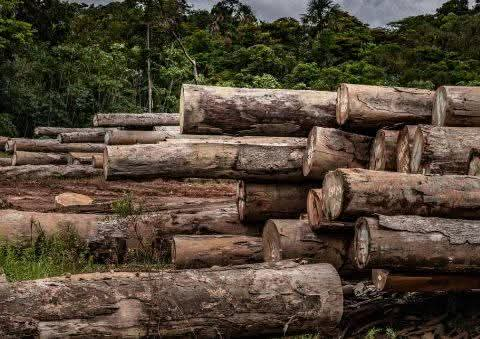Nigeria is losing an estimated 400,000 hectares of forest cover every year due to unchecked deforestation, raising concerns among stakeholders in the charcoal sector about the nation’s environmental sustainability and economic future.
According to The PUNCH, the National President of the National Charcoal Producers, Dealers, Exporters, and Afforestation of Nigeria, Babatunde Edu, sounded the alarm during a stakeholders’ meeting held in Abuja on Thursday.
He described the trend as “alarming” and called for urgent measures to enforce compliance in the industry.
“We gather not merely to discuss, but to act. The charcoal sector in Nigeria stands at a critical juncture,” Edu stated. “On one hand, we recognise its economic value as a source of livelihood for millions, and as a significant contributor to trade and investment. On the other hand, we are confronted by increasingly unhealthy practices, reckless exploitation, and lack of compliance with established guidelines.”
Edu explained that Nigeria has already lost more than half of its forest reserves between 1990 and 2020, with estimates showing that up to 80 per cent of original forest cover has been depleted.
He attributed the crisis mainly to agricultural expansion, urbanisation, industrial development, and illegal logging.
“If these unhealthy dealings continue unchecked, our sector will be crippled, afforestation efforts will be undermined, and national and international confidence in Nigeria’s environmental sustainability commitments will be eroded,” he warned.
He further noted that global trade risks loom ahead with the European Union’s new deforestation regulations, which take effect in December 2025.
The rules stipulate that commodities such as cocoa, coffee, palm oil, soybeans, and timber must come from non-deforested land.
“We cannot ignore the reality. The EU has moved ahead with stricter rules, and if we fail to enforce compliance here, Nigerian products will face rejection abroad. Compliance is not optional; it is the bedrock of legitimacy both locally and internationally,” Edu stressed.
On the proposed executive ban on charcoal exports, Edu revealed that the Presidency had intervened and directed the Ministries of Trade and Environment to review the matter. According to him, “The clear intention is not to impose a blanket ban but to ensure the sector is better regulated and aligned with national and international standards.”
To tackle the crisis, he recommended the creation of a Joint Task Force to enforce compliance, curb illegal activities, and protect the interests of genuine operators.
He also urged the government to put an end to foreign dominance in the trade, citing violations of directives that bar foreigners from buying produce directly at farm gates.
“This is not the time for lip service. This is the time for decisive action. If we do not enforce compliance today, there will be no sustainable future for our business and no viable charcoal industry for the generations to come,” Edu added.







